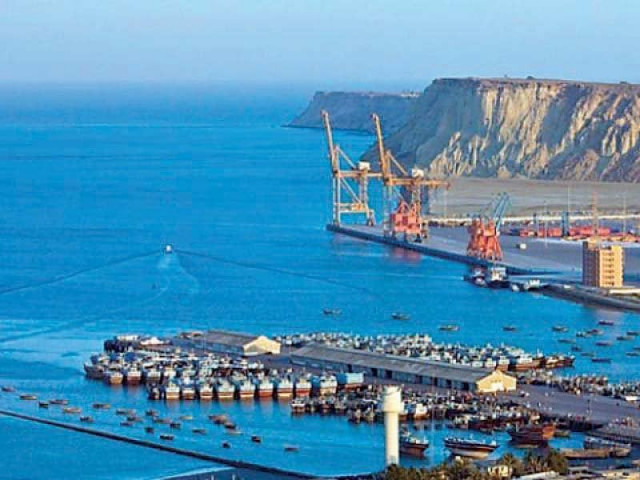Delay: SEZs unlikely to be ready for investment for two more years
BOI, planning ministry brief PM on implementation status of CPEC projects

The minutes of the 8th JCC meeting underlined that it was important to frame preferential policies that can meet the needs of investment companies and promote the construction of SEZs as soon as possible. PHOTO: FILE
The Board of Investment (BOI) and the Ministry of Planning and Development on Friday briefed Prime Minister Imran Khan about the implementation status of CPEC projects. The meeting also discussed Saudi Crown Prince Mohammad bin Salman’s next month visit to Pakistan.
The prime minister instructed the authorities to form the CPEC Business Advisory Council, consisting of leading Pakistani business executives to create an interface with the private sector. However, this will add another layer to an already complicated governance setup.
The BOI is the lead agency in implementation of the SEZ programme while the CPEC Business Council is expected to be stationed in the Ministry of Planning.
The PM is said to have taken the decision of setting up the council in less than a minute without discussing details of the relevant proposal.
SEZs
The PM was informed that at least two years would be required to ensure clean titles of land, provision of gas and electricity and guarantee security for establishing and making three prioritised zones operational, officials told The Express Tribune.
The three zones are planned to be set up in Rashakai, Khyber-Pakhtunkhwa; M3 Faisalabad, Punjab; and Dhabeji, Sindh.
An official statement said the PM directed the BOI chairman to present comprehensive recommendations for the speedy development of SEZs within four weeks.
SEZ initiative may prove to be double whammy for Pakistan’s economy
About nine prioritised SEZs had been planned to be established under CPEC to relocate dying industries from China to Pakistan. These zones will also be open for investment by other countries. Pakistan is eying to get a share in billions of dollars of investments and millions of new jobs as a result of relocation of Chinese industries to developing countries.
However, the lack of infrastructure development will delay the benefits. One of the reasons for slow progress on the SEZs is the lack of better coordination between federal and provincial governments.
A statement issued by the Prime Minister’s Office stated that the premier directed that a timeline-based policy on the provision of utilities to the SEZs should be prepared at the earliest.
“We need to quickly move towards developing an evidence-based plan to make the prioritised SEZs operational at the earliest,” remarked BOI Chairman Haroon Sharif while talking to The Express Tribune.
Despite these difficulties, the government wants to perform the groundbreaking of the SEZs in the first half of 2019.The prime minister directed the officials to make full use of Chinese investors’ visits this year, promote awareness amongst investors of Pakistan’s tax policies, market the SEZs along with their development and ensure ease of doing business.
Of the three prioritised zones, Punjab’s SEZ is moving ahead as it is being developed by the provincial government, which has also allocated funds in the budget.
Minister directs completion of SEZs
Although the K-P government has found a development partner, it has not yet been able to sign the concession agreement. The Dhabeji SEZ is the slowest among the three where the development partner has not yet been found by the provincial government.
The federal government would fast-track the provision of infrastructure and utilities to harness the full potential of industrial growth at the earliest, said Federal Minister for Planning Makhdoom Khusro Bakhtyar.
He said the government was considering providing the utilities through the Public Sector Development Programme (PSDP) as the setting up of new industries was very critical for sustainable economic growth. A lack of coordination between the federal and provincial governments, which is hampering the early development of the SEZs, is also reflected in the minutes of the 8th CPEC Joint Cooperation Committee (JCC) meeting.
“The Chinese side proposed that the BOI should coordinate and unite Pakistan’s land, energy, taxation, customs, law and other relevant departments to conduct research on the most critical issues, such as land prices, park development models, implementation of industrial projects, preferential tax policies and infrastructure support for all the SEZs, including Rashakai, Dhabeji and M3 SEZ in Faisalabad,” said the minutes.
The minutes underlined that it was important to frame preferential policies that could meet the needs of investment companies and promote the construction of SEZs as soon as possible, and actively attract more enterprises to invest and build factories, including the IT SEZ in Islamabad.
The PM directed that the Pakistani side should finalise a road map for promoting the agriculture sector, inviting Chinese companies to explore investment opportunities and leverage agro value chains.
The minutes of the 8th JCC meeting showed that the Pakistani side desired Chinese agriculture and food companies to explore investment opportunities in Pakistan for input supplies as well as food production, processing, logistics, marketing and exports in a vertically integrated way on their own or in joint ventures with Pakistani companies.
But there was no mention of the Chinese response to the proposal.
The prime minister also constituted a high-level committee, comprising ministers for planning, railway and finance, to finalise modalities of the Pakistan Railways’ ML-1 project - a strategic scheme of CPEC.
Published in The Express Tribune, January 19th, 2019.
Like Business on Facebook, follow @TribuneBiz on Twitter to stay informed and join in the conversation.





1733130350-0/Untitled-design-(76)1733130350-0-208x130.webp)












COMMENTS
Comments are moderated and generally will be posted if they are on-topic and not abusive.
For more information, please see our Comments FAQ